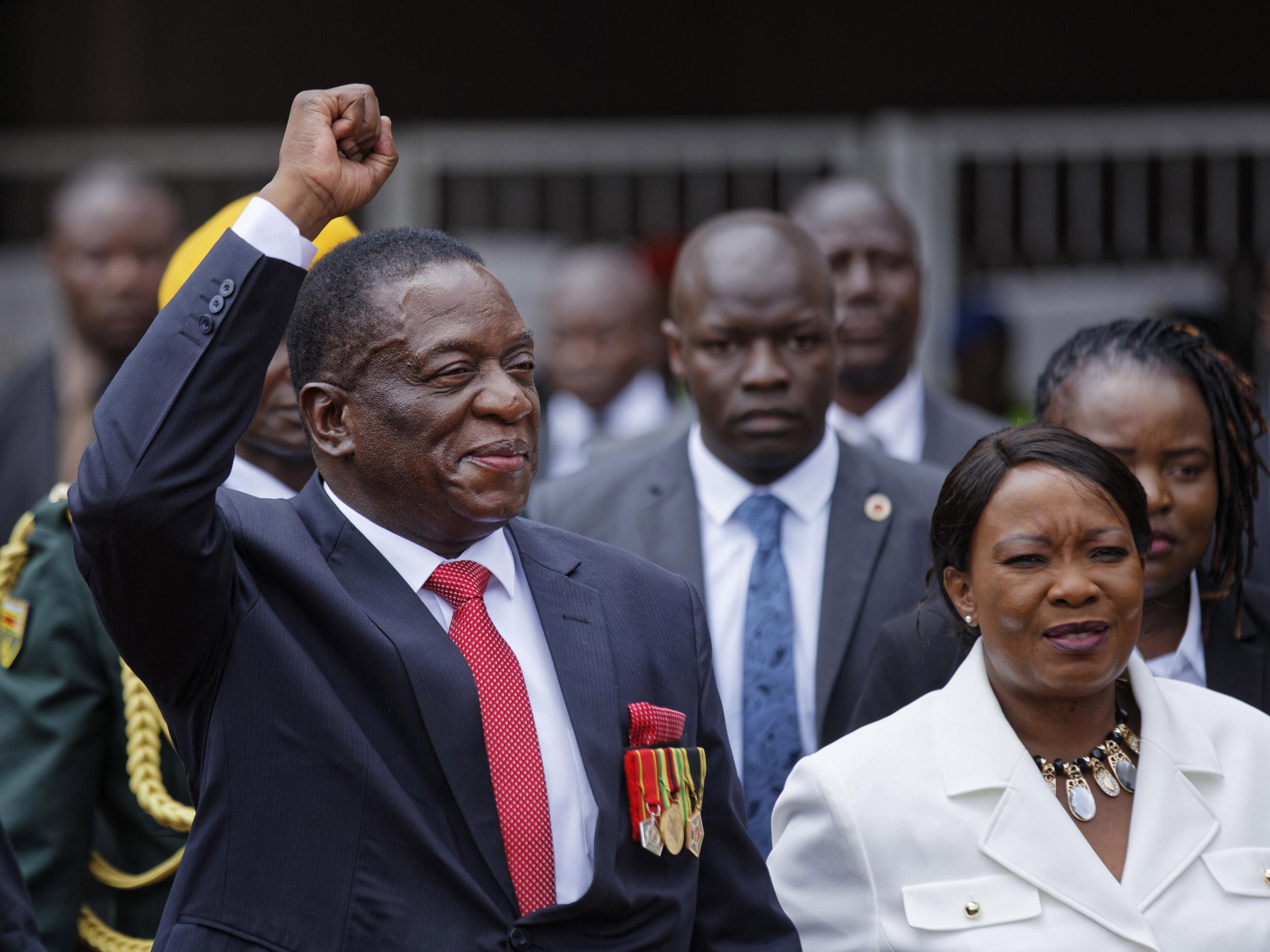Emmerson Mnangagwa has the tools to rebuild Zimbabwe – but there is no guarantee he will use them
The new President was an integral part of his predecessor’s regime and must show he is not simply a new Mugabe

When Robert Mugabe became the first prime minister of a free, independent and democratic Zimbabwe in 1980, his old friend and mentor, President Julius Nyerere of Tanzania, told him: “you have inherited a jewel”.
As power formally passes to Mugabe’s successor, the jewel that was Zimbabwe is no longer shining so brightly. It has become tarnished by decades of absolutism, which ended only when the military decided that the President’s attempt to bequeath his country to his wife threatened to create a Mugabe family dynasty. For the socialist Comrade President Robert Gabriel Mugabe, who fought so long for his country’s freedom, a political career had turned full circle.
The man who has supplanted Mugabe takes office just days after Mugabe tried to dismiss him from the vice-presidency – indeed, it was that act by the former President which triggered the military’s intervention. As he took the oath of office, Emmerson Mnangagwa promised a bright future, telling the many thousands gathered for his inauguration that he would serve all citizens, adding, significantly, that he was “not oblivious to the many Zimbabweans from across the political and racial divide who have helped make this day”.
Whereas in the not so distant past a despot such as Mugabe would not have escaped with his life from a military coup, this transition has been bloodless. President Mnangagwa even did Mugabe the courtesy of acknowledging their shared past in the liberation struggle and Mugabe’s position as “a father, mentor, comrade-in-arms and my leader”.
The Mugabes looks set to live out their days immune from prosecution in some obscurity (if they are wise). Unlike so many others, Robert Mugabe will most likely die peacefully in his sleep in his own bed: the final ambition of any dictator.
Emmerson Mnangagwa has inherited a country that has the potential to become a jewel once again. Zimbabwe has many historic strengths, eroded during the Mugabe years but not destroyed entirely. Traditionally the country has enjoyed a comparatively high literacy rate, for example, and in the early years of independence there was racial tolerance and a functioning free press and democracy, and an independent judiciary; there is no reason why those things cannot return.
There is potential too in agriculture and manufacturing; cereals and cash crops such as tobacco may be exported again. The currency, having been debased beyond measure during the years of hyper-inflation, can be rebased and re-established. What is needed is for President Mnangagwa and his colleagues to re-establish political rights, and to encourage a multi-party democracy to flourish once again.
He needs to guarantee the human rights of every Zimbabwean, no matter what their racial, ethnic or tribal origins. He should also learn the lesson of Zimbabwe’s many failed experiments in state control and make his country a welcoming place to do business and to invest. In the Southern African Development Community, the African Union, and the Commonwealth, Zimbabwe can count on many friends and supporters, willing to participate in Zimbabwe’s future. Post-Mugabe, Mnangagwa’s greatest immediate asset is international goodwill.
Still, Emmerson Mnangagwa is no Nelson Mandela. He is said to have been in charge of the North Korean-trained Zimbabwean security forces who carried out massacres in Matabeleland in 1984, which were a thinly disguised attack by Mugabe’s Shona on the rival Ndebele people and their leader, Joshua Nkomo, once Mugabe’s fellow freedom fighter and vice-president.
Mnangagwa is just as much a part of the fabric of Zanu-PF as his predecessor, and the movement hasn’t changed its ideology. He was also notably hard-line in the aftermath of the disputed 2008 presidential election. “The Crocodile” is not a nice man.
With the power now at his disposal, Zimbabwe’s new leader can, as he promises, begin to rebuild the nation. Sadly for Zimbabweans, however, there are no guarantees that he will do so.
Join our commenting forum
Join thought-provoking conversations, follow other Independent readers and see their replies
Comments
Bookmark popover
Removed from bookmarks